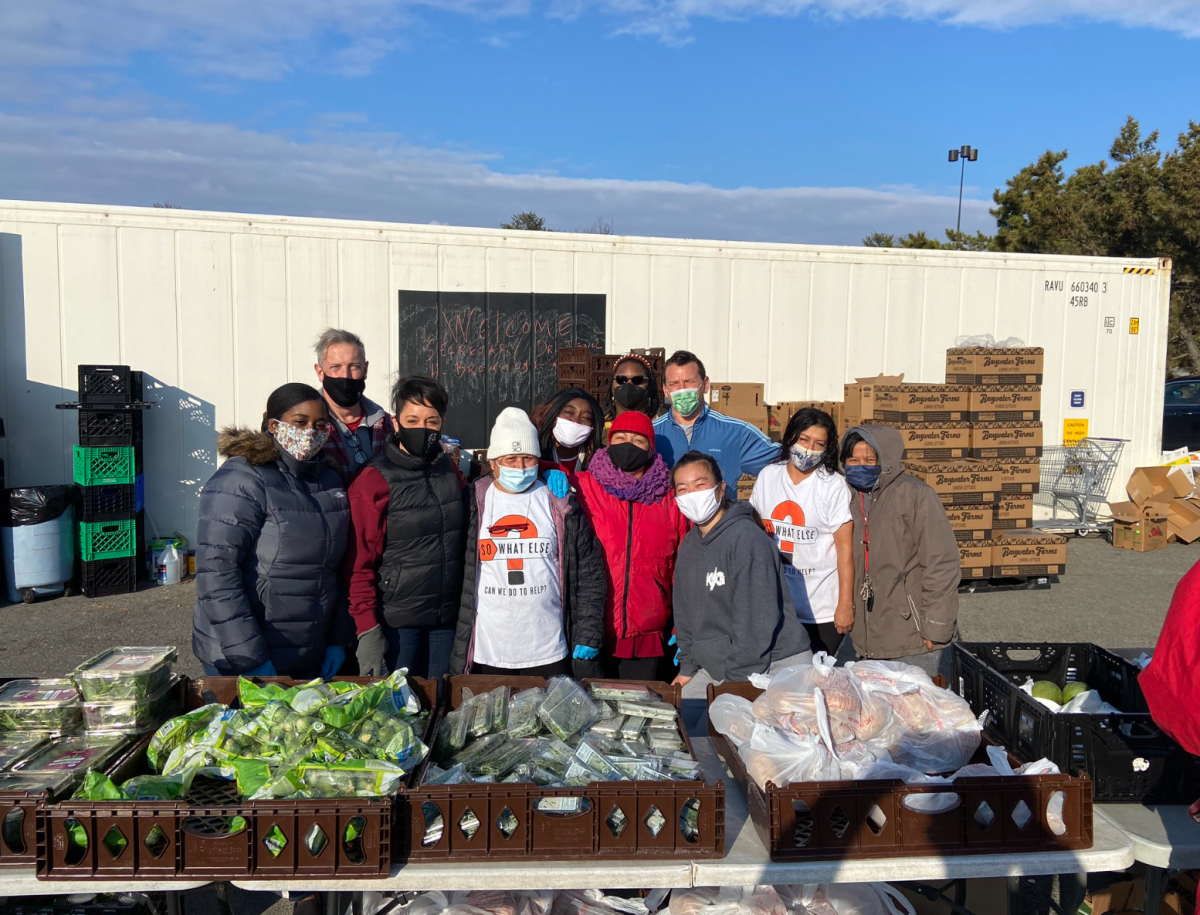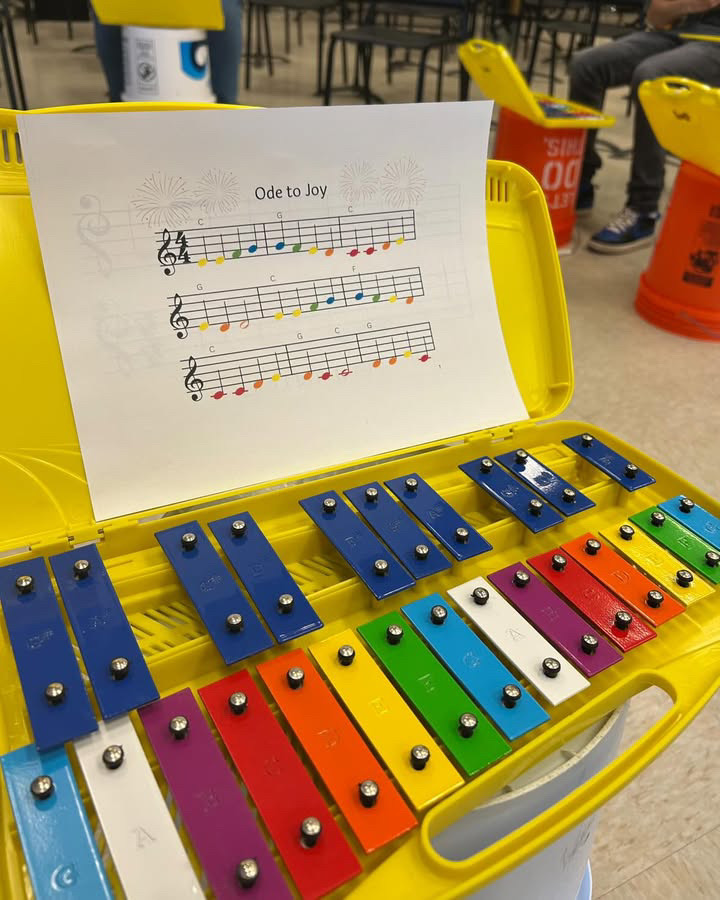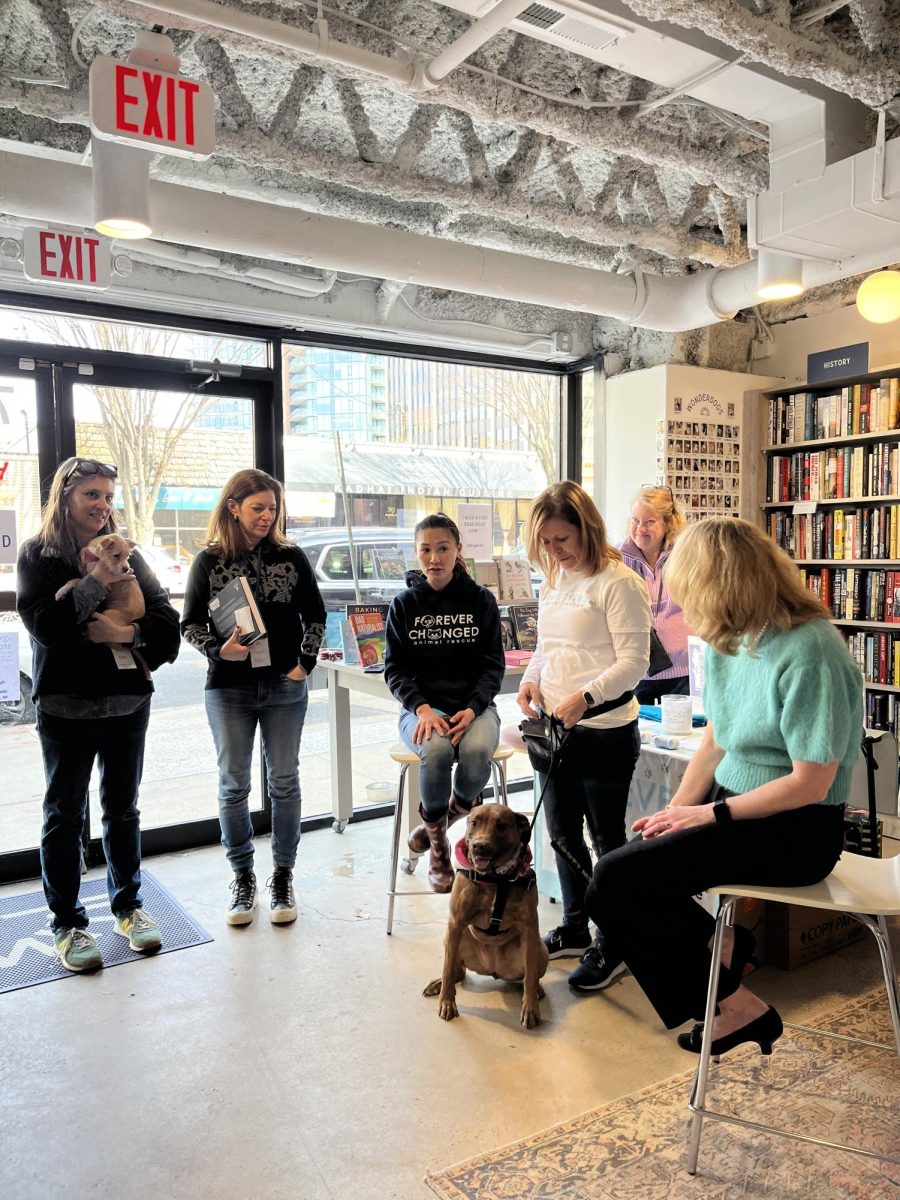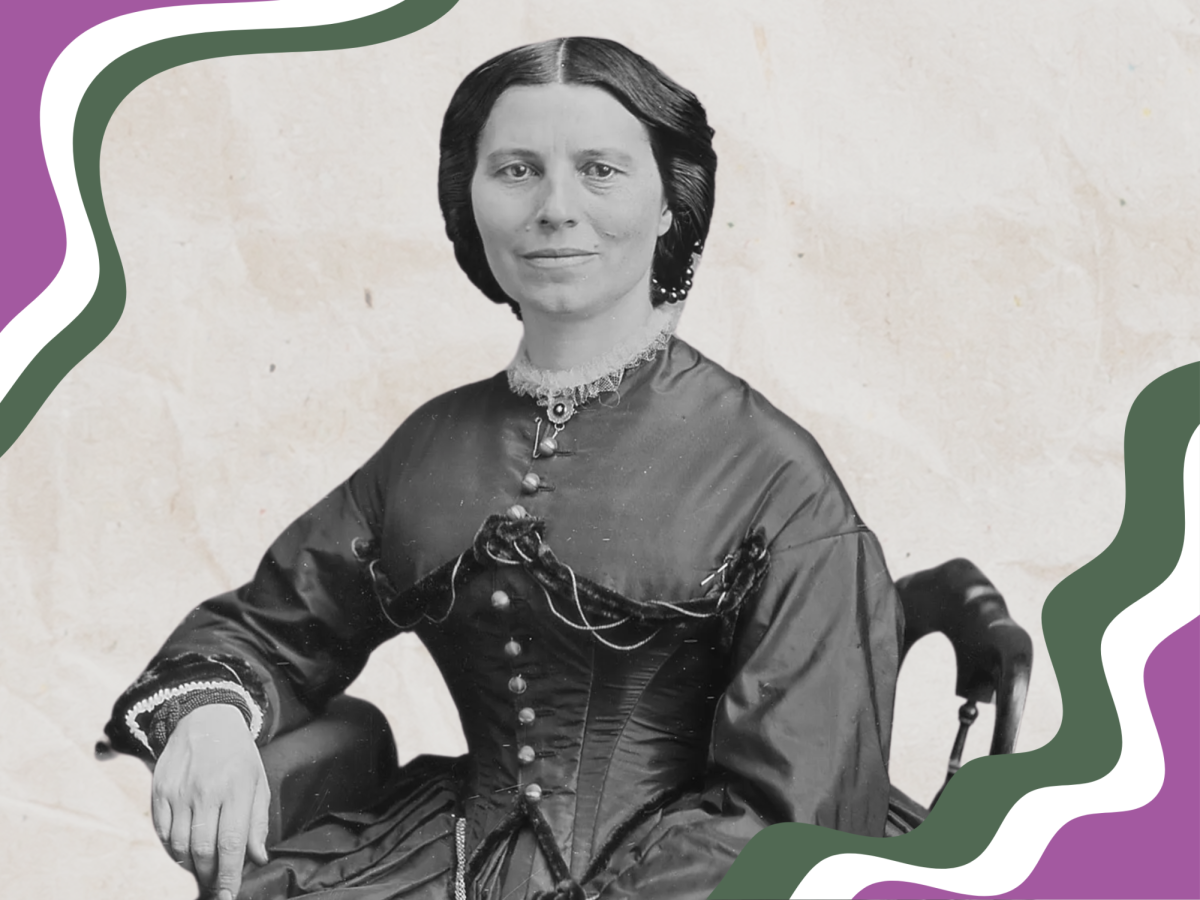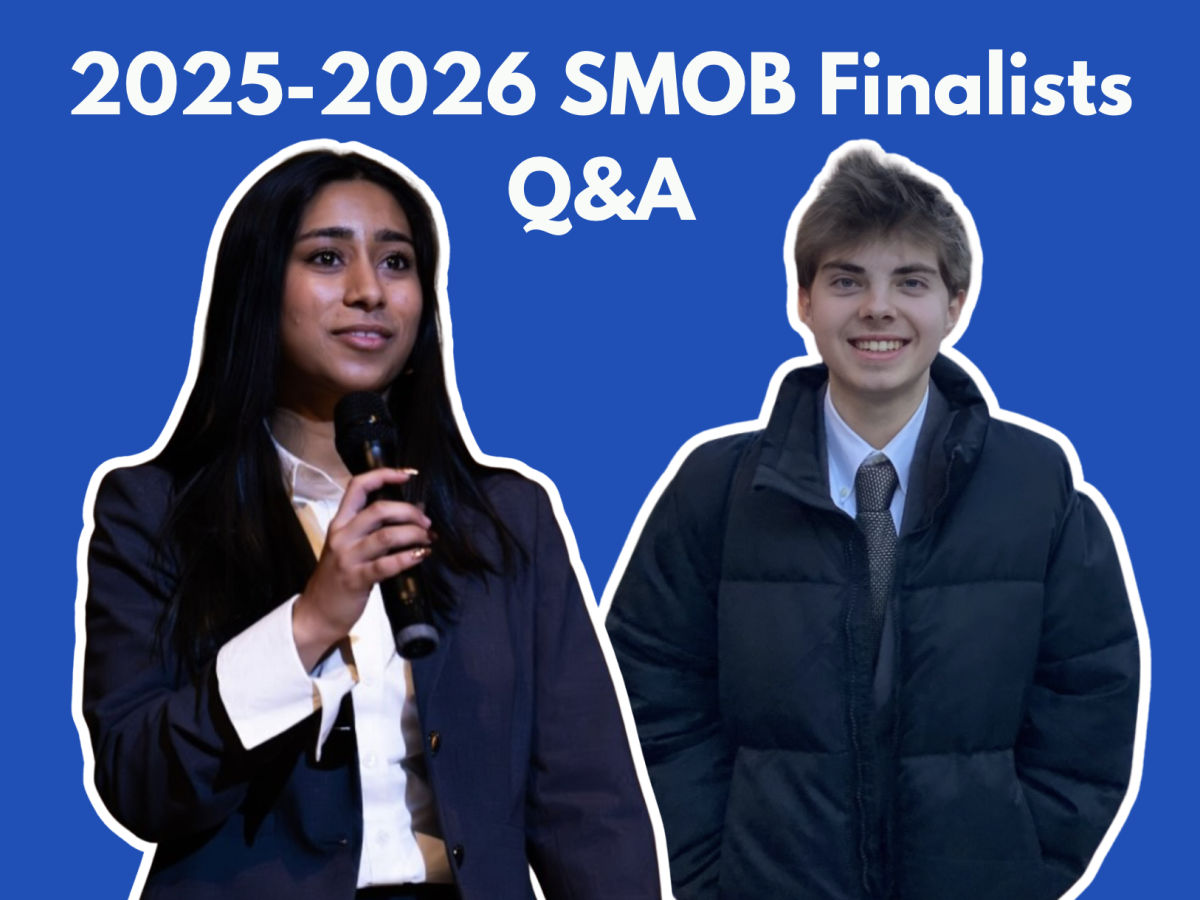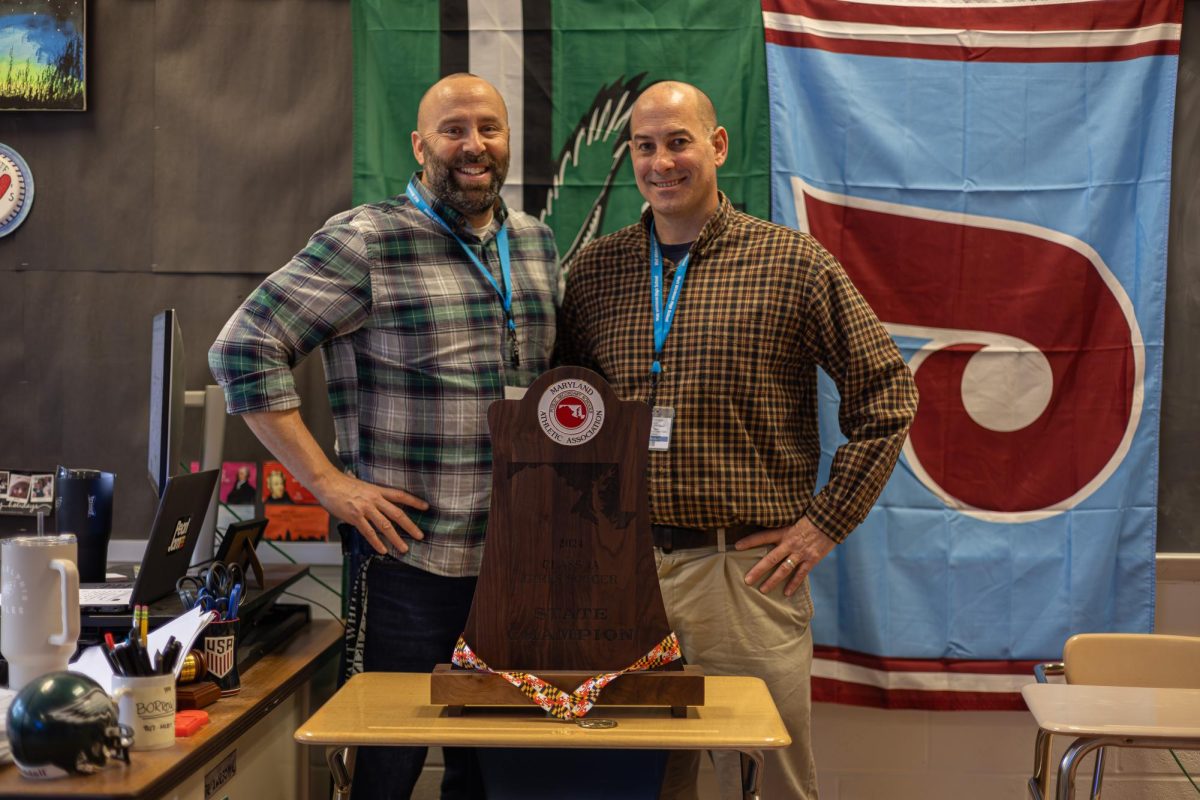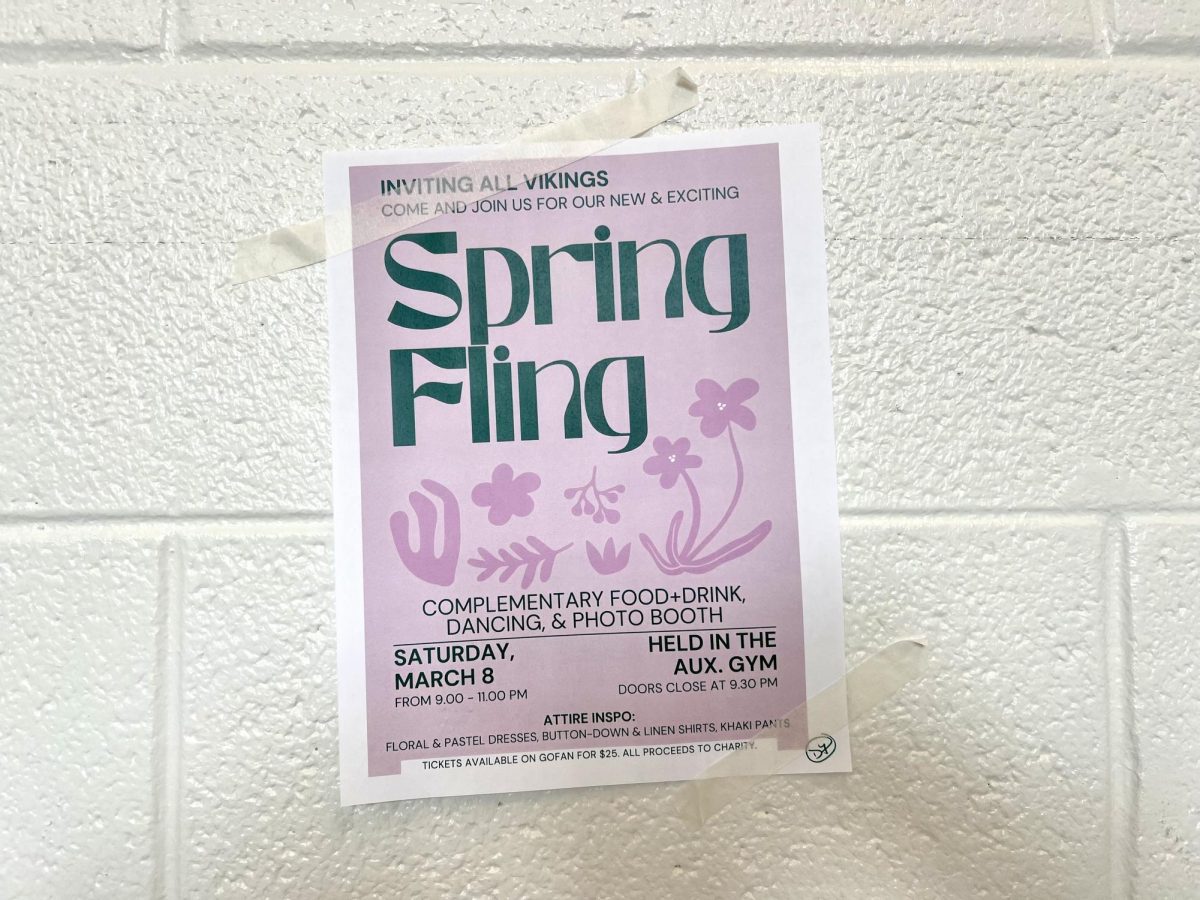Rows of colorful vegetables adorn the folding tables set up across the Wyaconda Road parking lot. Families roam through the distribution site, eagerly eyeing the tables and awaiting their turn to shop. The food that families receive at the Wyaconda distribution site will fill their tables with nutritious meals, helping alleviate the strain of food insecurity.
Montgomery County (MoCo) is known for its affluence, ranking 20th nationally for the highest median household income. However, this characterization masks large pockets of poverty within the county’s borders — in 2022, 7.18% of Montgomery County Residents lived below the poverty line. As members of the community struggle to meet their basic needs, the local non-profit So What Else (SWE) has stepped up to support them.
The non-profit organizes youth programs for at-risk kids in Montgomery County, Washington D.C. and Baltimore, and provides vulnerable populations with access to food security and essential goods. Through listening to the communities’ needs, So What Else administers tailored aid to tackle global problems on a local level.
Founded in 2009, So What Else has aided the community for nearly 15 years. Consisting of 22 after-school programs and 18 summer camps, the So What Else Youth Program offers educational, recreational activities and food pick-ups for families without cost. SWE’s programs go beyond addressing hunger to address health, education and well-being concerns.
Food insecurity is a socio-economic condition where individuals lack consistent access to adequate food. According to the National Institute of Health, food insecurity is linked to an increased risk of developing various health conditions like diabetes, heart disease and mental health disorders. For children, insufficient access to food can delay development and lead to behavioral issues such as anxiety and aggression.
When the COVID-19 pandemic first broke out in 2020, the number of people living with food insecurity in MoCo rose to 115,000 — 37% higher than the pre-pandemic level.
Montgomery County Council member Gabe Albornoz has been serving as Chair of the Council’s Health and Human Services Committee since 2022. Subsequently, he has witnessed the pandemic’s long-term effects ripple through vulnerable communities in the county.
“A lot of families who were right on the line, just making ends meet and living paycheck to paycheck, sort of fell off a cliff,” Albornoz said.
Amidst the pandemic, So What Else co-founder Dave Silbert restructured the organization to meet the shifting needs of Maryland and D.C. communities.
“When the pandemic hit, we quickly needed to make an emergency transformation because we were not going to be able to go to our classes,” Silbert said. “That has led us to four years of service in the food distribution area.”
In March 2020, SWE launched a rescue food bank program, which has provided over 50 million meals to food-insecure communities in Baltimore, D.C. and MoCo since its inception. The rescue food bank program has grown significantly since 2020, with 17 distribution sites currently operating in MoCo. SWE’s North Bethesda headquarters offers additional services to families in need, such as a thrift store and food pantry.
“When it came to the food bank, it really brought out our spirit and our ability to meet community needs,” Silbert said.
According to the Montgomery County Resource Management Division, over 89,000 pounds of food are wasted in MoCo annually. So What Else counters food waste by recovering surplus food from restaurants and grocery stores and reallocating it to communities in need. The non-profit has salvaged and distributed over 70 million pounds of food through partnerships with businesses like Panera Bread and Costco.
Major contributors to food insecurity in Montgomery County include high living costs, a stagnating economy and a widening wealth gap. Income ratios measure income inequality by comparing the mean incomes of the highest and lowest quintiles of earners in a region. In 2020, MoCo reached a record-high income ratio of 15.38, demonstrating a stark economic divide. The wealth gap contributes to an increasingly expensive environment where low-income residents can’t financially support themselves.
“It’s both a good but also a challenging thing that we have a very robust economy,” Albornoz said. “It’s leaving a lot of people out.”
The 2023 Montgomery County Economic Indicators Briefing observed that from 2004 to 2021, MoCo had the slowest personal income growth rate per capita among 30 similarly sized counties. This indicates a stagnant economy in which residents’ income cannot keep up with national inflation. Stagnation additionally threatens the ability of low-income residents to finance their basic needs.
The MoCo Health and Human Services Committee works to address issues like these through countywide programs, funding and legislation.
“We are investing in a lot of community-based organizations, non-profit organizations that are doing really great work,” Albonoz said, “work that the county government can’t do on its own.”
Twinbrook Elementary, a Title I Montgomery County public school, recently sought SWE’s support. In keeping with their motto “So what else can we do to help?”, the non-profit listened to the community’s needs and launched an afterschool program and food distribution site at the school. Due to economic strains, many Montgomery County communities are seeking SWE’s assistance.
“We kind of hit a double-edged sword where the need is so high and the costs are going up,” Silbert said. “We’re spending more while the lines are growing.”
So What Else innovated new distribution methods to address growing community needs. For example, the rescue bank in North Bethesda now offers a drive-through pick-up on Saturdays, where families receive pre-packed food packages assembled by SWE volunteers.
Volunteer Tara Mowbray believes maximizing efficiency is crucial to feeding the highest number of people daily.
“We’ve had to be more creative with how we distribute so that we can make sure that we feed those greater numbers,” she said.
Through the SWE Student Board, teenagers can join the non-profit and give back to their community. The board has seven branches operating in local high schools and works to engage young people in community service.
Each month, the Board launches a new initiative following the needs of the community and organization, like coat drives during the winter months and a food drive for Thanksgiving. Student Board Director Julia Lvovsky encourages Whitman students to establish their own club chapter at Whitman.
“It’s just very rewarding and you know that So What Else is not just an organization that’s a money grab,” Lvovsky said. “They’re actually implementing everything that we do for the greater good.”
Volunteer work at SWE is accessible to people of all backgrounds and levels of ability. Work includes a variety of tasks such as unloading trucks, hanging clothes or packaging boxes of food.
“Volunteers are the backbone of our organization,” Mowbray said. “Without the wonderful volunteers that work their butts off and sweat with us and clean with us and laugh with us and our clients, we wouldn’t be where we are today.”



